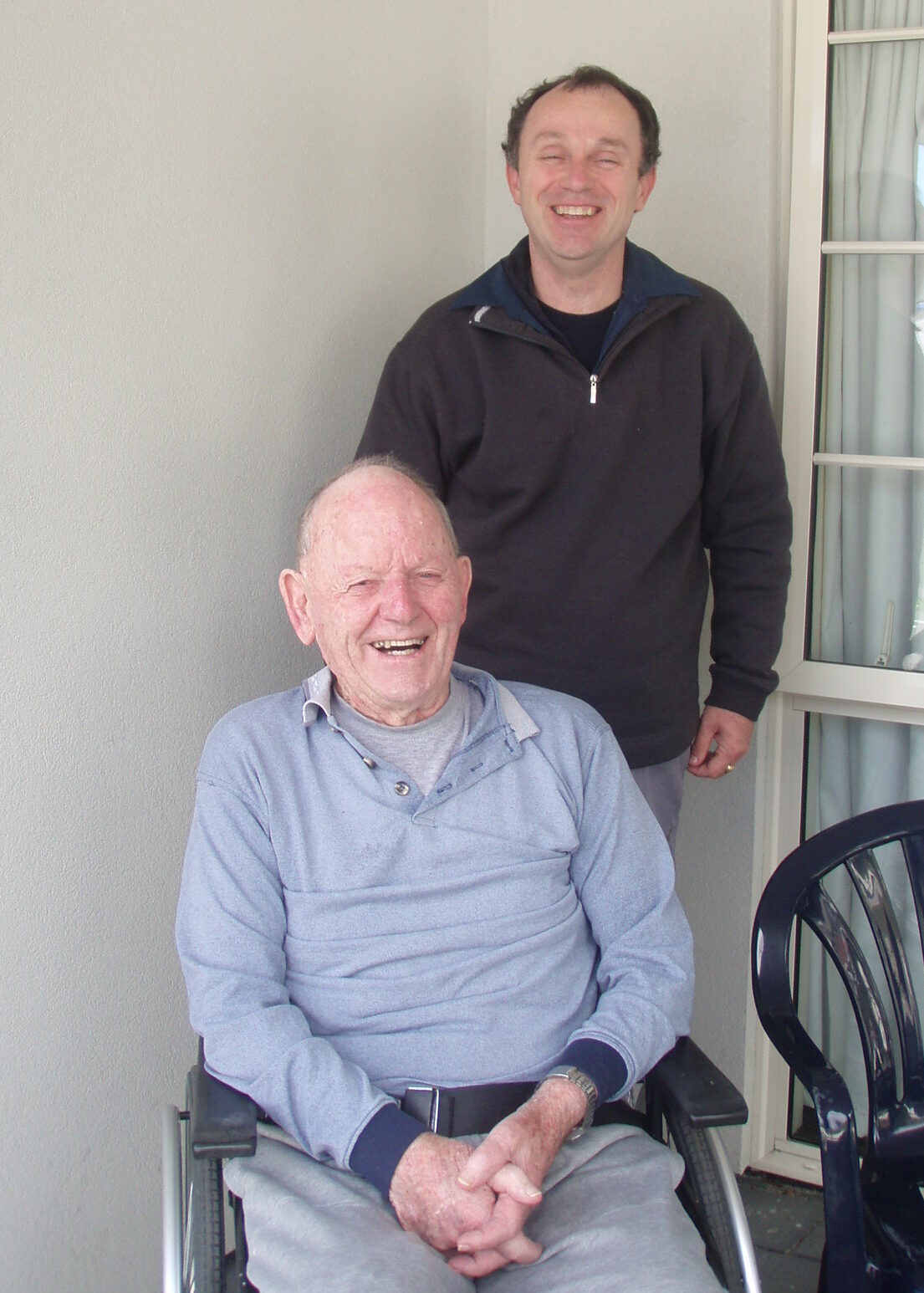My father had MS. This is his story. My Dad died on 4th August this year, aged 99 years and 4 months.
Married in 1952 he started to experience the familiar pins and needles not long after.
Over the next 2 decades he had various symptoms and doctors examined him and ruled out all sorts of conditions.
It wasn’t until the first MRI machine arrived around 1983 that Dad was finally diagnosed with Multiple Sclerosis. None of us knew anything about it and there was no treatment.
We watched him experience remitting/relapsing episodes that started far apart, gradually getting more frequent. Each time Dad worked hard and regained his strength.
We gave him a walking frame to assist him in 1999. By 2002 he needed a wheelchair outside if we were going anywhere but mainly walked with the frame. By 2010 he was having falls and difficulty managing being independent, so we placed him in care.
It wasn’t until 2012 that he needed to be full time in the wheelchair as he could no longer transfer himself, and he went everywhere in his self-propelled chair, reveling in newfound independence.
By late last year he was starting to suffer the consequences of sitting in a wheelchair for hours every day and developed pressure sores. He had treatment but the damage was done, and he was finally bedridden in April as he celebrated his birthday.
A combination of factors I believe contributed to his longevity. Mum was passionate about making things easy for him, modifying houses so the bathrooms were suitable, modifying his clothes so he could still dress himself, and just generally thinking ahead, removing stress and making life easier.
Dad also kept his strength up, especially upper body strength, to keep his independence. About all he kept a positive attitude, flexible behaviour and a ready laugh.
He died with MS, not of it and he proves that a diagnosis of MS does not always mean an early end to life. He lived a long and full life, managing his illness and carrying on anyway.
He is most certainly an inspiration.
On a secondary note, in 1986 my brother was also diagnosed with MS, and while he is still with us, MS has taken a far greater toll on his life. He took a course different to Dad of prescribed drugs, drug trials, chemotherapy and everything he could think of to put himself in remission. It all failed. He was in a wheelchair before dad, but at 62 he stills maintains some independence and lives in his own home with support.
During the 90’s I was a volunteer with the MS society in Melbourne. Enrolled in the Buddy programme I visited people with MS to spend time with them and just to talk. I saw many people far worse off than my father and brother and it made me realise that everyone’s journey with MS is different and they all need support in different forms.
It is a cruel disease, but it doesn’t have to be totally unbearable.

Alison